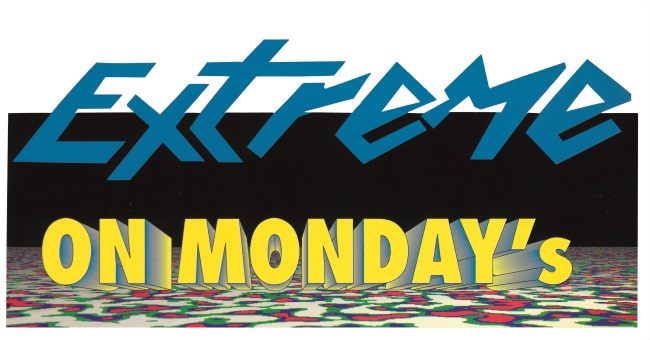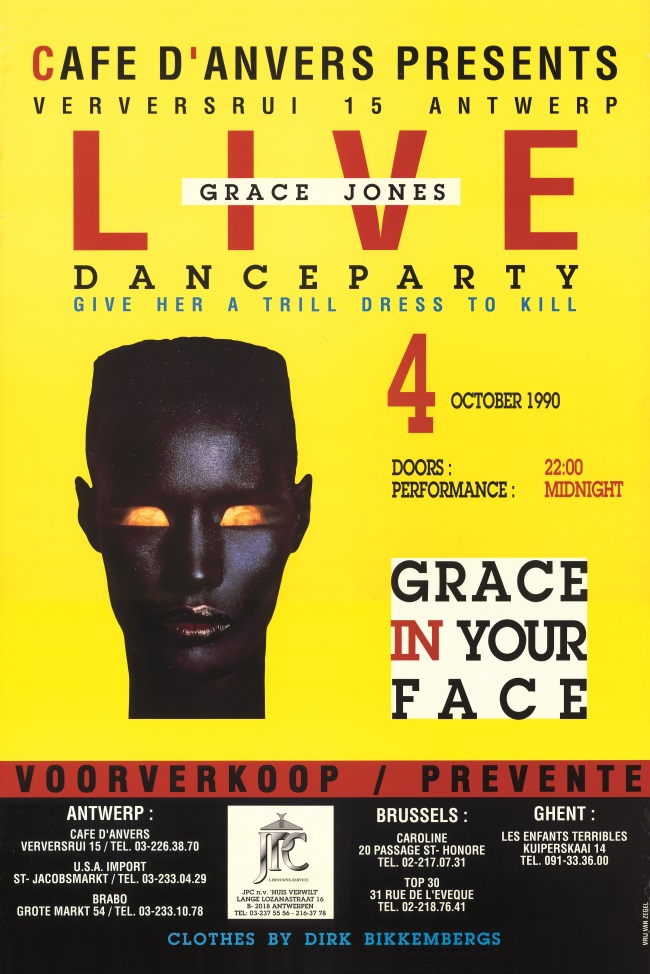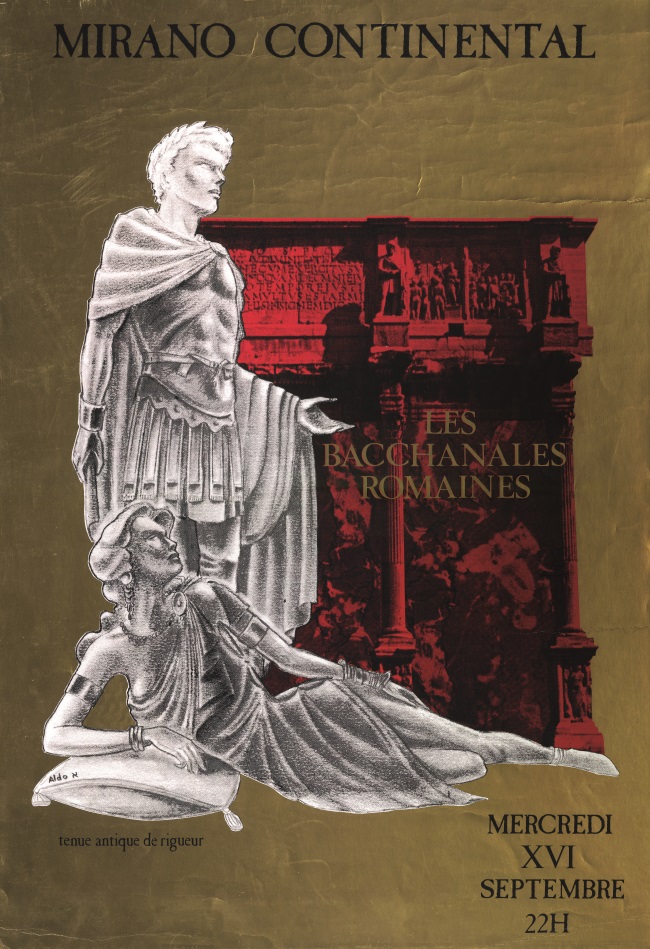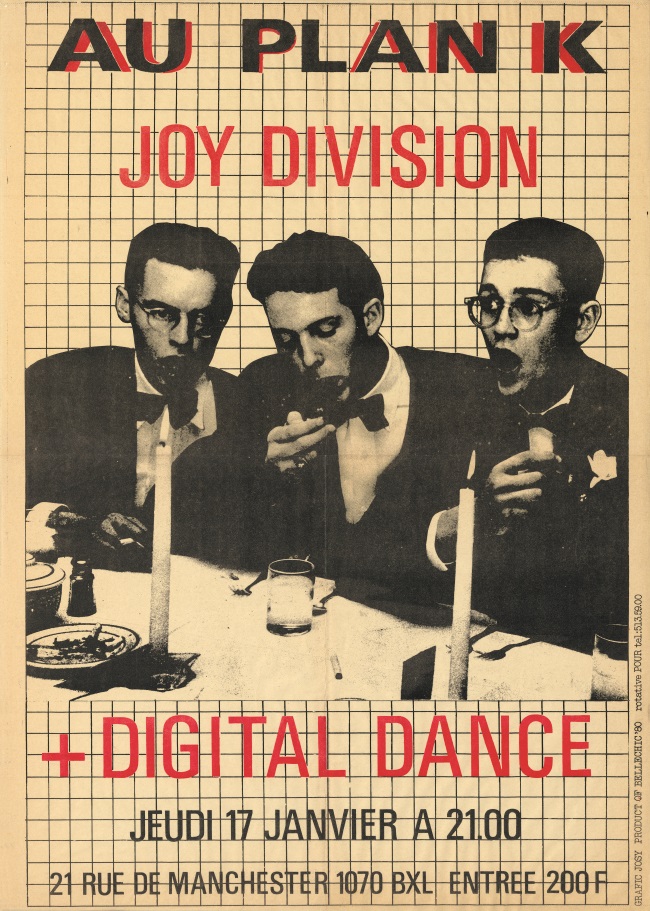
ADAM – Brussels Design Museum presents Designing The Night: Graphic Design of Belgian Club Culture, 1970-2000.
From 1 March until 29 September 2019, the ADAM – Brussels Design Museum presents Designing the Night. Graphic Design of Belgian Club Culture, 1970-2000, an exhibition devoted to Belgian nightlife graphics. The exhibition gathers rare documents with exclusive designs: flyers, posters, invitations, etc. Stemming for the most part from private collections and presented here for the first time, they bear witness to the tremendous graphic creativity initiated by iconic nightclubs. While Night Fever.

Designing Club Culture 1960-Today immersed visitors in the design history of nightclubs, this new exhibition concentrates on the graphics of nightlife in Belgium. From punk graphics to the crossing of disco with New Wave aesthetics, from the representation of the body to imagery permeated by technology, from luxury brands to club branding, the research carried out by curator Katarina Serulus bears witness to a range of styles, subcultures, musical genres, identities and creative ideas stimulated by the night scene from the 1970s to the early 2000s.
Often created by amateurs and autodidacts, all these documents demonstrate a total freedom of expression, transforming the relics of parties into an ephemeral art form. In the 1970s, the iconic posters for the concerts of Joy Division at Plan K in Brussels left a deep impression, like the montage designed by Jocelyne Coster. Printed on cheap newsprint, today it features in the collection of MoMA in New York. Photomontages, collages, rubdown lettering, photocopies images: all these creations echo the punk visual culture and its easy, cheap and rapid anti-aesthetics.
As the post-punk or New Wave movement was emerging, disco entered the nightlife and revolutionized the world of clubbing. The crossing of the former’s visual culture with the latter’s glitz and glamour generated a rich graphic output. The exhibition includes the creations of Aldo Gigli, graphic designer and décor builder for the Mirano Continental, who played a key role in mixing these aesthetics.

An essential figure in club graphics, the body was displayed uninhibitedly in an ambiguous state that sometimes transforms it into a purely erotic object. This generates a more general reflection on gender policy in the world of clubs, characterized by male domination. In its turn, fashion took over the night, the flyers specifying the dress code, the Mirano hosting fashion shows and becoming an important platform for the avant-garde fashion of the Antwerp Six. Other clubs and labels launched clothing lines featuring their logos and visual identities, like Antler-Subway Records with their New Beat Fashion collection, or Bonzai Records whose logo, a major visual icon of the rave culture, featured on bomber jackets and T-shirts.

The digital technology that marked the end of the 1980s revolutionized both music, with the emergence of New Beat, and graphic design, which took hold of these new tools to create flyers, posters and record sleeves as visible, elegant and attractive as possible. The 1990s would gradually see the clubs turn their attention to capitalist culture in order to appropriate its logos and messages, rewiring the visual codes of consumer society, before themselves becoming brands in their own right.
Since its creation, the ADAM – Brussels Design Museum has cast an innovative and surprising gaze on plastic design from the 1950s until today but also on other forms of design. While the permanent collection focuses on the impact of plastics in the field of design, the temporary exhibitions make it possible to explore other aspects and other periods. Designing the Night enriches the museum programme and underlines that graphic design is one of the fields of design. The exhibition is the subject of a publication in collaboration with CFC-Éditions. It will enrich the collection launched by the Brussels-based publishing house and the museum since its opening in March 2015.
Practical information
When: from 1 March until 29 September 2019
Where: ADAM – Brussels Design Museum – Place de Belgique, 1020 Brussels
Opening hours: daily from 10:00 until 18:00
www.adamuseum.be






